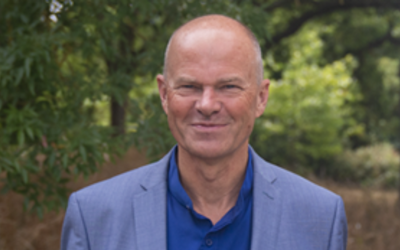You are here
- Home
- External Events and Publications
- Biennial APS Conference
- APS Conference 2023
- Conference programme
- What do we know about the impact of an Access programme?
What do we know about the impact of an Access programme?
John Butcher, The Open University
Email: john.butcher@open.ac.uk
Session recording
Presentation
Click to download the presentation What do we know about the impact of an Access programme? (.pptx)
Abstract
This seminar presents key findings synthesised from three scholarship projects conducted at the Open University (OU) exploring the impact of a part-time Access module. The OU has offered a suite of three 30 credit level 0 preparatory Access modules since 2013, attracting around 4K students from disadvantaged backgrounds per year.
Scholarship on the impact of the STEM Access module was undertaken first, with student surveys, tutor interviews and analysis of outcome data demonstrating important effects during the module: increased learner confidence; a reduced fear of maths; and an engagement with ‘doing and reading about’ science. An ‘Access effect’ was subsequently identified, sustained into Year 1 undergraduate study, by which students who began with Access were more likely to complete and pass their first undergraduate science module - enhanced assessment literacy prompting more strategic learners to submit every task and engage with tutor feedback (Butcher et al, 2018; Butcher et al 2020).
Second, the impact of the ‘Arts and languages’ Access module was explored through interviews with 37 students. Conclusions included: the impact of embedded generic skills enhancing learner confidence and time management; and the effect of literacy skills relevant to the arts and humanities enhancing cultural capital, enabling disadvantaged learners to access challenging disciplines. Impact extended into the lives of individual students, suggesting a counter-narrative to the prevailing, ‘economic value’ paradigms of higher education policymakers. (Butcher & Clarke, 2022; Butcher & Clarke, 2021) This year, a third scholarship project began, exploring the impact of the social science Access module ‘People, work and society’, which attracts the most disadvantaged students. Interim findings will be presented on the impact on perceptions of employability and student identity.
Recommendations for sector colleagues include the imperative that all universities embed a flexible, student-centred, confidence-building preparatory taster experience aimed at students returning to education.
References
Butcher, J. & Clarke, A. (2021) ‘Widening HE participation in the arts: impacts of an Access module on learner preparedness’, Arts and Humanities in Higher Education https://doi.org/10.1177/14740222211004884
Butcher, J. & Clarke, A. (2022) ‘Part-time mature students and (the unexpected benefits of?) access to the arts’. In Broadhead, S.(ed.), Access and widening participation in arts higher education: Current practice and research, Springer Nature - Palgrave Macmillan. 119-140
Butcher, J., Clarke, A., Wood, C., McPherson, E. & Fowle, W (2018) "How does a STEM Access module prepare adult learners to succeed in undergraduate science?", Journal of Further and Higher Education https://doi.org/10.1080/0309877X.2018.1476679
Butcher, J., Wood, C., McPherson, E., & Clarke, A (2020) ‘How might mature students with low entry qualifications succeed in undergraduate Science?’ Widening Participation and Lifelong Learning, 22, (3), 137-165
Prof John Butcher
Professor of Inclusive Teaching in Higher Education, The Open University
John Butcher is Professor of Inclusive Teaching in Higher Education. As Director, Access, Open and Cross-curricular Innovation at the OU, he is responsible for the development, enhancement and implementation of the institution's pan-University teaching curriculum.
John has published Developing Effective 16-19 Teaching Skills and co-edited Leading Professional Development in Education (both Routledge) and many journal articles, including those in: Widening Participation and Lifelong Learning, Journal of Further and Higher Education, International Journal of Academic Development, Innovations in Education and Teaching International, The Curriculum Journal; Journal of Education for Teaching; Teacher Development; Research Papers in Education; Open Learning; Mentoring and Tutoring. He is Managing Editor for the international journal Widening Participation and Lifelong Learning.
John is an active researcher and has successfully supervised 14 doctorates to successful completion.
